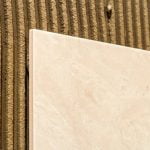Can you file home improvements on your taxes to receive a tax deduction? Home improvements can have a significant impact on the value and functionality of your property. But did you know that they can also potentially provide tax benefits?
In this article, we will explore the ins and outs of filing home improvements on your taxes, including eligible improvements, determining tax deductions, limitations and restrictions, and even the implications for home office or business use. Understanding these factors can help maximize potential tax benefits while ensuring compliance with relevant tax laws.
Firstly, it’s important to understand what constitutes home improvements and why they are significant. Home improvements refer to renovations or modifications made to a property to enhance its value, functionality, or aesthetics. These can include both minor upgrades such as installing energy-efficient windows, as well as major renovations like adding a new addition to the house. In certain cases, these expenses may qualify for tax deductions under specific circumstances.
When it comes to determining the eligibility of home improvements for tax deductions, there are specific criteria to consider. For example, energy-efficient upgrades and modifications made for medical necessity may be eligible for deductions.
However, it’s essential to keep accurate records and receipts for all home improvement expenses in order to substantiate these claims during tax filings. By exploring these aspects further, homeowners can gain a better understanding of how to optimize potential tax benefits related to their property upgrades.
Eligible Home Improvements for Tax Deductions
When it comes to filing home improvements on your taxes, it’s important to understand which types of home improvements qualify for tax deductions. Eligible home improvements are those that add value to your property or contribute to its overall energy efficiency. These can include a wide range of upgrades, modifications, and renovations that enhance the functionality and sustainability of your home.
Types of Eligible Home Improvements
Energy-Efficient Upgrades
One common category of eligible home improvements includes energy-efficient upgrades such as installing solar panels, upgrading to energy-efficient windows or doors, or adding insulation to improve the home’s energy efficiency. These types of improvements can not only save you money on utility bills but also qualify for valuable tax incentives.
Medical Necessity Modifications
Additionally, modifications made to accommodate medical necessities or disabilities may also be eligible for tax deductions. This can include installations such as wheelchair ramps, accessible bathrooms, or other accessibility features that are necessary for medical reasons.
When determining the tax deduction for eligible home improvements, it is important to keep accurate records and receipts for all related expenses. The amount and percentage of the deduction will vary depending on the specific improvement and any applicable tax credits. It’s recommended to consult with a tax professional for guidance in accurately determining the tax deduction for your eligible home improvements.
How to Determine the Tax Deduction for Home Improvements
When it comes to determining the tax deduction for home improvements, there are several criteria that come into play. Understanding these criteria can help homeowners maximize their tax benefits. Here are some key factors to consider:
1. Cost of the Home Improvement: The cost of the home improvement project is a crucial factor in determining the tax deduction. In general, any expenses related to making eligible improvements to your home can be considered for a tax deduction.
2. Eligibility for Tax Credits: Some home improvements may also qualify for tax credits rather than just deductions. These credits directly reduce your tax liability, providing even greater financial benefits. For example, certain energy-efficient upgrades such as solar panels or HVAC systems can qualify for these credits.
3. Accurate Records and Receipts: It is essential to keep thorough and accurate records of all expenses related to home improvements. This includes receipts for materials, labor costs, and any permits obtained for the project. Without proper documentation, you may not be able to claim the full extent of your eligible deductions.
In addition to these factors, it’s important to note that there may be specific IRS guidelines and regulations that apply to certain types of home improvements when it comes to determining the tax deduction. Consulting with a tax professional can provide further clarity on how these rules apply to your individual situation.
Limitations and Restrictions on Tax Deductions for Home Improvements
While many home improvements can offer tax benefits, there are limitations and restrictions on what you can claim as deductions. Typically, regular home maintenance and repairs cannot be deducted from your taxes. However, if a repair has been made to improve the overall value or extend the life of your property, it may be considered a deductible expense. For example, fixing a leaky roof or repairing structural damage could potentially qualify for a tax deduction.
Another limitation to keep in mind is that any personal expenses included in the cost of the improvement are not eligible for a tax deduction. This means that if you renovate your kitchen and use part of it for personal use, only the portion exclusively used for business purposes can be claimed as a deduction (if applicable).
It’s important to note that certain luxury items such as swimming pools, hot tubs, or other extravagant additions do not usually qualify for tax deductions. The IRS typically looks for improvements related to energy efficiency, medical necessity modifications, or accessibility enhancements when determining eligibility for deductions.
In addition to these limitations and restrictions, the amount you can deduct for qualifying home improvements might also be limited based on factors such as your income level and the specific nature of the improvement. And while there are limitations on home improvement tax deductions, they should not discourage you from exploring potential benefits available to you.
| Eligible Home Improvements | Non-Eligible Home Improvements |
|---|---|
| Energy-efficient upgrades | Luxury additions (swimming pools) |
| Medical necessity modifications | Cosmetic renovations |
| Accessibility enhancements | Regular home maintenance and repairs |
Home Office and Business Use of Home Improvements
When it comes to filing taxes, many homeowners wonder if they can actually file home improvements on your taxes. One important aspect to consider is the use of home improvements for home offices or business purposes. Here’s a closer look at the tax implications of using home improvements for these situations.
Eligible Home Office and Business Use Improvements for Tax Deductions:
- Construction or Renovation Costs: Expenses related to constructing or renovating a home office space, such as adding walls, installing built-in shelving, or expanding the area.
- Upgrades for Business Equipment: Costs associated with upgrading equipment used for business purposes within the home, such as computers, printers, or specialized machinery.
- Utilities and Maintenance: Deductions for a portion of utilities and maintenance costs directly related to the home office or business area.
Determining the Tax Deduction for Home Improvements in Home Offices and Business Use:
To determine the tax deduction for home improvements used in a home office or business setting, taxpayers must calculate the percentage of their home that is used exclusively for business purposes. This percentage is then applied to various expenses related to the entire property to determine eligible deductions.
Documentation and Reporting Requirements:
Homeowners utilizing home improvements for business purposes must keep detailed records and receipts of all relevant expenses. This includes documentation of construction costs, equipment upgrades, and ongoing maintenance and utilities specifically related to the use of the home as a place of business.
Claiming tax deductions for eligible home improvements used in home offices or business settings can be a complex process that may require expert assistance from a qualified tax professional. It’s essential for homeowners in these situations to seek professional guidance when navigating these tax implications.
Tax Credits vs Tax Deductions for Home Improvements
When it comes to filing home improvements on your taxes, it’s important to understand the difference between tax credits and tax deductions. Both can provide financial benefits, but they work in different ways and have varying impacts on your overall tax liability.
Understanding Tax Deductions
Tax deductions for home improvements involve reducing the amount of your income that is subject to taxation. This means that you can deduct a portion of your home improvement expenses from your taxable income, potentially lowering the amount of taxes you owe. Eligible home improvements may include energy-efficient upgrades such as solar panels or insulation, as well as modifications for medical necessity, such as wheelchair ramps or grab bars.
To determine the tax deduction for home improvements, it’s crucial to keep accurate records and receipts for all related expenses. This documentation will serve as evidence when claiming the deduction on your tax return.
Exploring Tax Credits
Unlike tax deductions, which reduce the amount of income subject to taxation, tax credits provide a dollar-for-dollar reduction in the actual amount of taxes owed. This makes tax credits particularly valuable, as they directly decrease the amount of taxes you are responsible for paying.
For eligible home improvements, certain energy-efficient upgrades may qualify for federal tax credits. These can include installations such as solar panels, geothermal heat pumps, and small wind turbines. It’s important to note that not all home improvements will qualify for tax credits, so it’s essential to research and understand the specific criteria for each credit opportunity.
By understanding the distinction between tax credits and deductions for home improvements, homeowners can maximize their potential tax benefits and make informed decisions about their home improvement projects.
Documentation and Reporting Requirements for Home Improvement Tax Deductions
When it comes to claiming tax deductions for home improvements, documentation and reporting requirements are crucial aspects that need to be considered. Proper documentation helps support your claims and ensures that you can maximize the tax benefits for eligible home improvements. It’s essential to keep accurate records and receipts for all home improvement expenses, as this will be necessary when filing your taxes.
One important document that you should have is a detailed breakdown of the costs associated with the home improvements. This includes not only the materials and labor but also any additional expenses such as permits, inspections, and other fees. In addition, it’s recommended to keep before and after photos of the improvements as further evidence of the work done.
When reporting home improvement expenses on your tax return, it’s important to use the correct forms and include all relevant information. For example, if you are claiming a tax deduction for energy-efficient upgrades, you will need to complete Form 5695 (Residential Energy Credits) and include it with your tax return. Failing to accurately report home improvement expenses or using the wrong forms can result in potential issues with the IRS.
It’s also a good idea to consult with a qualified tax professional to ensure that you are meeting all the documentation and reporting requirements for claiming tax deductions on home improvements. A tax professional can provide valuable guidance on what documents are needed and how to accurately report home improvement expenses on your tax returns. By seeking professional advice, you can avoid potential errors or omissions that could impact your ability to maximize tax benefits for eligible home improvements.
| Documentation | Reporting Requirements |
|---|---|
| Keep accurate records and receipts | Use correct forms and include all relevant information |
| Detailed breakdown of costs | Consult with a qualified tax professional |
| Before and after photos of improvements | Avoid potential errors or omissions |
Consult a Tax Professional for Home Improvement Tax Deductions
When it comes to navigating the complex world of taxes and deductions, especially in relation to home improvements, seeking the expertise of a tax professional can be invaluable. A tax professional, such as a certified public accountant (CPA) or tax advisor, can provide personalized guidance and help ensure that you maximize your tax benefits while staying compliant with relevant regulations. They can offer tailored advice based on your specific circumstances, helping you make informed decisions regarding eligible home improvement expenses.
Furthermore, a tax professional can assist in determining which home improvements may qualify for tax deductions and how to accurately report these expenses on your tax return. Their knowledge of the ever-changing tax laws and regulations enables them to provide up-to-date information that
Moreover, consulting a tax professional for home improvement tax deductions can give you peace of mind knowing that you are taking full advantage of any available benefits while avoiding potential pitfalls. By leveraging their expertise, you
Conclusion
In conclusion, understanding the tax benefits of home improvements is crucial for homeowners looking to maximize their financial savings. By taking advantage of eligible tax deductions, individuals can potentially reduce their overall tax liability while also investing in the value and efficiency of their homes. It’s important to remember that not all home improvements qualify for tax deductions, so it’s essential to familiarize oneself with the criteria and guidelines set forth by the IRS.
When considering whether you can file home improvements on your taxes, it’s important to keep detailed records and receipts of all qualified expenses. This documentation will be essential for accurately reporting home improvement costs on your tax return and potentially claiming deductions or credits. Additionally, seeking professional advice from a qualified tax professional can provide valuable guidance on navigating the complexities of home improvement tax benefits.
Ultimately, homeowners can benefit from a combination of tax deductions and credits for eligible home improvements, potentially offsetting a portion of their expenses. By staying informed about the available options and requirements, individuals can make informed decisions about their home improvement projects while making the most of potential tax benefits. As always, consulting with a tax professional is recommended to ensure compliance with regulations and maximize opportunities for savings.
Frequently Asked Questions
Can I Deduct Home Improvements on My Tax Return?
You typically cannot deduct home improvements on your tax return, as they are considered personal expenses. However, some home improvements that increase your home’s energy efficiency may be eligible for certain tax credits.
What Is Tax Deductible for Homeowners?
Tax-deductible expenses for homeowners include mortgage interest, property taxes, and certain home office expenses. Additionally, expenses related to the maintenance and improvement of your home may also be deductible under certain circumstances.
What Qualifies as Capital Improvements?
Capital improvements are generally substantial investments in your home that increase its value or extend its life. Examples include adding a room, replacing the roof, renovating the kitchen or bathroom, or installing a new heating and cooling system. These improvements are added to the cost basis of your home and may reduce capital gains taxes when you sell it.

I’m thrilled to have you here as a part of the Remodeling Top community. This is where my journey as an architect and remodeling enthusiast intersects with your passion for transforming houses into dream homes.





